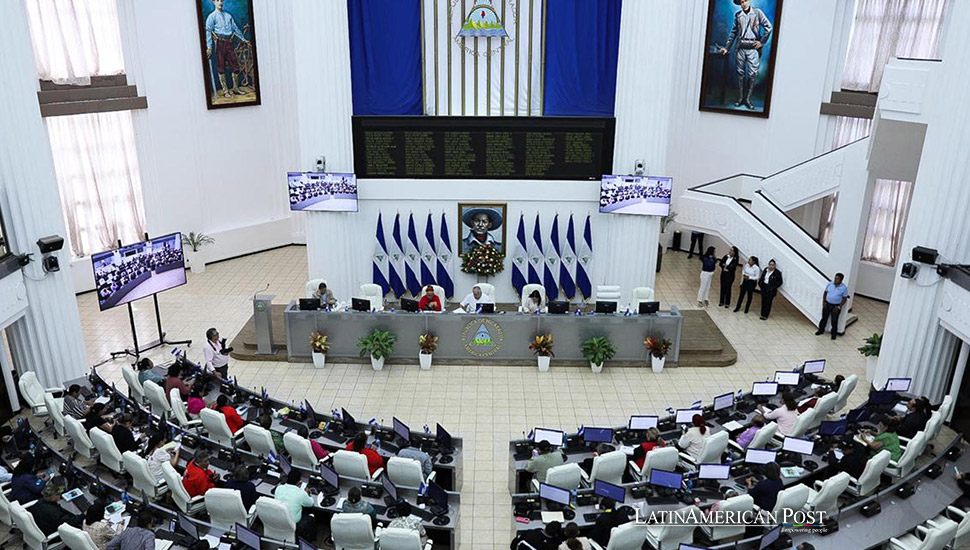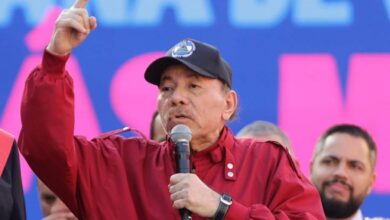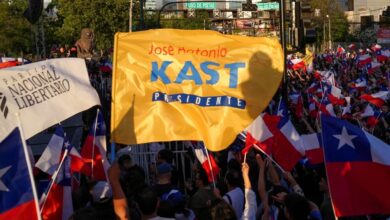Nicaragua’s New Legal Reforms: A Step Toward State Surveillance

In a controversial move, Nicaragua’s National Assembly has passed sweeping reforms granting police the authority to conduct raids, access personal data, and seize financial assets without judicial oversight. These measures mark a significant shift in the nation’s legal framework and raise concerns over civil liberties.
Nicaragua’s National Assembly, dominated by the ruling Sandinista party, has enacted sweeping reforms to the country’s Código Procesal Penal (Criminal Procedure Code), significantly expanding the police’s power. The reforms, proposed by President Daniel Ortega and approved by 89 out of 91 lawmakers, allow the Policía Nacional to bypass judicial oversight in conducting searches, seizing electronic equipment, and accessing personal communications.
Under the new regulations, the police now have the authority to collect information from telecommunications companies, including call records, text and voice messages, and geolocation data, without needing a court order. This controversial move has sparked widespread debate, marking a dramatic shift in the balance between law enforcement powers and personal privacy in Nicaragua.
For supporters, these measures are necessary to combat organized crime, terrorism, and cybercrime, but critics argue that they grant the government unprecedented control over citizens’ lives, with potential for abuse. Human rights organizations have expressed alarm, warning that these changes could be used to stifle dissent and target political opponents.
Unchecked Authority in “Urgent Cases”
One of the most contentious aspects of the reforms is the new authority granted to the police to carry out searches and seizures without a judicial warrant. According to the revised law, in “urgent cases,” the police can enter homes, confiscate electronic devices, and extract information from computer systems and mobile phones.
The legislation outlines that the police have up to three business days to seek approval from the courts for their actions retroactively. This three-day window for judicial validation raises concerns about the potential for misuse, with critics fearing that the vague definition of “urgent cases” could allow the police to act with impunity.
Additionally, the reforms permit police to access financial records, freeze accounts, and seize assets without informing the individuals involved. This expansion of police powers has been justified as a tool to combat serious crimes, including money laundering, terrorism financing, and cybercrime. However, the lack of transparency and judicial oversight is troubling for civil liberties advocates, who worry that the reforms could lead to politically motivated investigations and asset seizures.
International Concerns and Civil Liberties at Risk
The international community watches closely as Nicaragua consolidates power under President Ortega’s government. These legal changes come at a time of growing repression in Nicaragua, where the state has targeted opposition figures, journalists, and activists.
The United Nations and international human rights organizations have raised alarms over Nicaragua’s increasing authoritarianism, and these new reforms only heighten concerns. The reforms effectively remove a critical check on executive power by allowing law enforcement to bypass the judiciary, leaving citizens vulnerable to abuses.
Inka Mattila, the resident representative of the United Nations Development Programme (UNDP) in Ecuador, commented on the global rise of misinformation and digital surveillance, highlighting that countries like Nicaragua must be cautious in how they wield their new powers. “The digital age has made it easier for governments to monitor their citizens, but the challenge lies in balancing national security with individual rights,” said Mattila.
While the reforms are presented as a means to strengthen the country’s fight against organized crime, there is fear that they may instead be used as tools of repression. Nicaragua’s history of cracking down on political opposition raises the specter of these laws being leveraged to silence dissenting voices. Critics worry that under the guise of fighting crime, the Ortega government could use these powers to target opponents, stifle free speech, and maintain its grip on power.
The Global Trend Toward Surveillance
Nicaragua is not alone in enacting laws that expand state surveillance. Across Latin America, countries have been grappling with how to respond to the rise of cybercrime, terrorism, and organized crime. Nations like Mexico, Brazil, and Colombia have also implemented laws that grant more authority to law enforcement agencies, though these have often sparked similar debates about privacy and civil liberties.
For example, the government has introduced a National Guard with broad powers to conduct surveillance and arrests in Mexico. At the same time, Brazil’s Lei de Proteção de Dados Pessoais (LGPD) sets out strict regulations on data collection, though enforcement has been inconsistent. Colombia, too, has struggled with balancing security needs with individual rights, especially in the context of its long-standing internal conflict with paramilitary groups.
While these countries justify increased surveillance as necessary for national security, human rights organizations argue that these measures often come at the expense of personal freedoms. The global shift toward state surveillance has raised ethical questions about the role of governments in the digital age, and Nicaragua’s new laws fit into this broader pattern.
However, Nicaragua’s case stands out because of its current political climate. Under Ortega, the country has systematically dismantled democratic institutions, with the president’s family and close allies holding critical positions of power. Critics argue that giving the police unchecked authority in this context is particularly dangerous, as it concentrates even more power in the hands of a small ruling elite.
A National and Global Impact
Nicaragua’s new legal reforms have implications beyond its borders. Latin America has long been marked by political instability and authoritarianism, and Nicaragua’s move toward greater surveillance could set a precedent for other nations in the region.
The reforms could potentially undermine citizens’ trust in their government. If law enforcement can act without oversight, citizens may feel less secure in their freedoms and more vulnerable to state intervention in their daily lives. This could further erode confidence in the electoral process as the fear of surveillance and repression grows.
For Nicaragua, these legal changes will likely solidify the country’s reputation as an increasingly authoritarian state. As the government continues to crack down on dissent and expand its control over civil society, the international community may need to reassess its relationship with Nicaragua.
Whether these reforms will lead to greater security or control for those in power remains to be seen. As history has shown, unchecked authority often leads to abuse, and Nicaragua may be walking a dangerous path with these new laws.
Nicaragua’s decision to grant the police extensive surveillance and investigative powers without judicial oversight marks a significant moment in the country’s political trajectory. While the government claims these reforms are necessary to combat crime, there is growing concern that they may be used to target political opponents and silence dissent.
Also read: Nicaragua’s NGO Ban: A Clear Assault on Democracy and Civil Liberties
Nicaragua’s case highlights the importance of protecting civil liberties in the digital age as the global trend toward state surveillance continues. Without proper checks and balances, the very freedoms that democratic societies are built upon may be at risk. The international community must remain vigilant, ensuring that governments like Nicaragua do not use national security as a pretext for repression.





